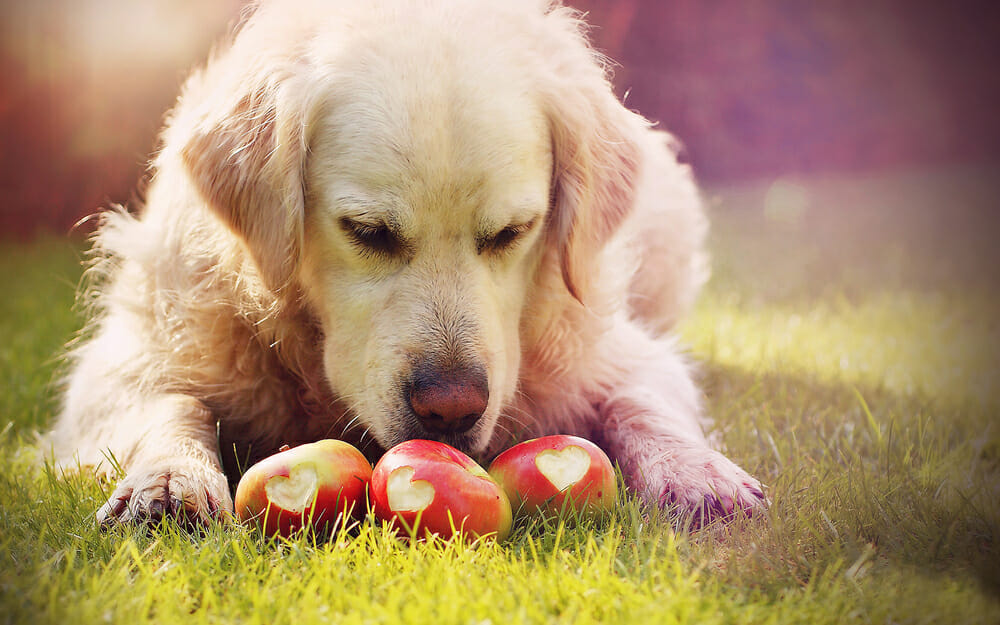YES! Dogs and cats can eat fruits and vegetables, but some foods are toxic, and both species have different sensitivities and digestive systems. For this reason, both species have limitations on what they can have.
Dogs can digest many different vegetables and fruits. Some must be cooked before consumption, though.
Acceptable Raw Fruits and Veggies for Dogs Include:
- Carrots
- Oranges
- Apple (do NOT feed seeds or core)
- Celery
- Cucumber
- Blueberries
- Cantaloupe Melon
- Honeydew Melon
- Watermelon
Acceptable Cooked Vegetables for Dogs Include:
- Green Beans
- Cauliflower
- Cabbage
- Broccoli
- Beets
- Asparagus
- Zucchini
Cats are obligate carnivores; this means they require a diet of almost all meat to survive. When cats hunt and eat their natural prey, they also consume small amounts of vegetable matter that’s in the gut of their prey. Due to this, they can withstand a small amount of roughage in their diet. Small amounts of vegetables can add needed fiber to assist with their digestive system. Plant intake should not exceed 15% of their daily food intake.
Acceptable Cooked Vegetables for Cats:
- Carrots
- Peas
- Corn Kernels
- Broccoli Florets
- Green Beans
- Zucchini
- Pumpkin
- Sweet potato
- Squash
Acceptable Raw Fruits and Veggies for Cats:
- Blueberries
- Cucumber
- Ripe Cantaloupe
- Ripe Watermelon
- Strawberries
Fresh and frozen fruits and veggies are good options for both species. Canned vegetables should not be fed to dogs or cats. Over 50% of dogs and 59% of cats in North America are classified as overweight or obese. Fruits and veggies are a great way to add extra nutrition to your pets’ diet without adding unnecessary calories. Always introduce new foods slowly and in small quantities to avoid gastrointestinal upset.
Toxic Substances for Both Dogs and Cats:
- Onions
- Grapes
- Avocados
- Tomatoes
- Apple Seeds and Stems
- Raisins
- Garlic
- Cherries
- Chocolate
- Fatty Foods
- Nuts (especially macadamia nuts)
- Alcohol
- Apricots
- Coffee
- Mushrooms
- Melon Seeds
- Fruit Pits
Signs of Toxicity in Your Pet Include:
- Vomiting
- Diarrhea
- Difficulty Breathing
- Abnormal Urine – Color, Odor, Frequency
- Excessive Salivation
- Seizures
- Weakness
If your pet ingests a harmful substance contact your local veterinarian or poison control immediately.
If you have any questions, please give us a call at 204.253.2668.
Written by: Carly, RVT




